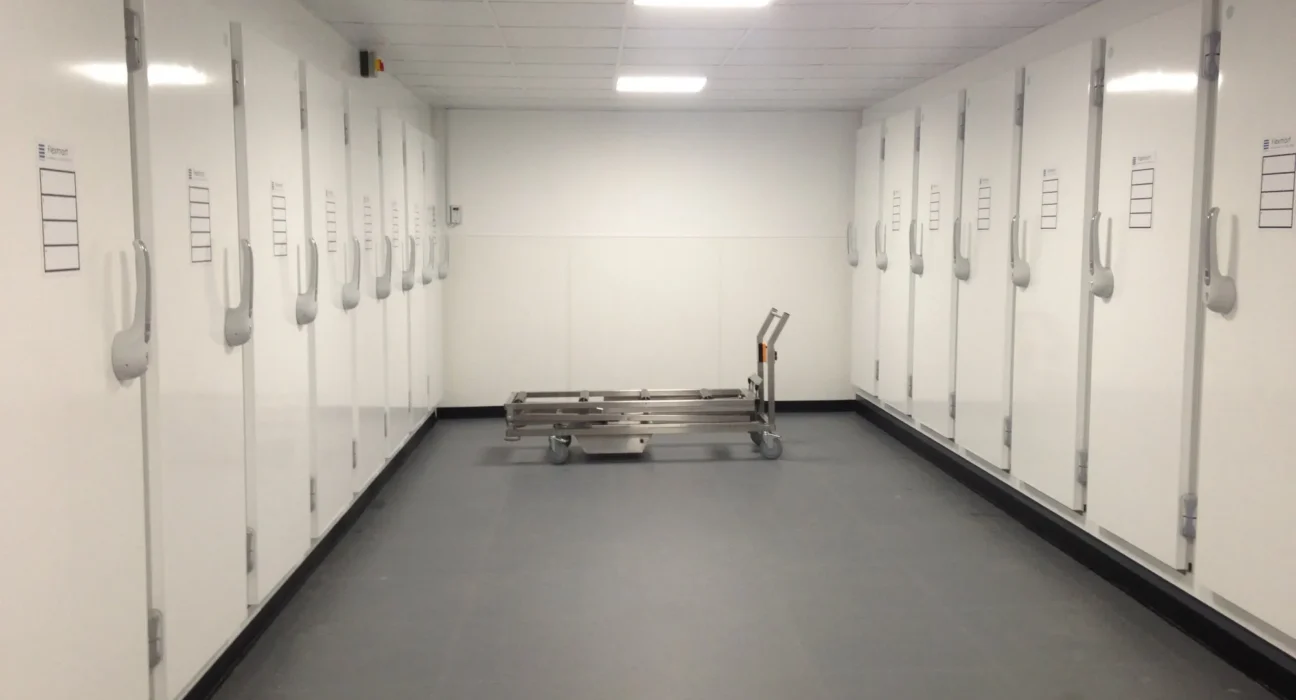The infrastructure of forensic labs, funeral homes, and hospitals must include mortuary cabinet coolers. Their main purpose is to keep dead bodies cold so that the decomposition process is slowed down considerably. These coolers are essential for public health and safety in addition to their role in preservation; they guarantee that the dead are treated in a way that keeps them clean, stops the transmission of infectious diseases, and adheres to community health norms.
Stopping the Transmission of Contagious Illnesses:
Controlling the spread of infectious diseases is one of the main functions of mortuary cabinet coolers. The body of a deceased individual with a communicable disease may still contain microorganisms that are dangerous to the public’s health. It is possible to prevent the growth and spread of these infections by storing them properly in mortuary coolers at regulated temperatures. During epidemics of diseases like COVID-19, Ebola, or other contagious conditions, when the risk of transmission persists even after death, containment becomes even more crucial. Mortuary coolers shield the community at large and the mortuary workers by stopping the spread of illnesses.
Maintaining sanitized storage:
For the sake of the deceased’s dignity and the security of those handling them, proper cleanliness must be maintained in body storage. Mortuary cabinet coolers are made with materials and construction methods that make cleaning and disinfection simple, all in an effort to meet strict hygiene regulations. Stainless steel surfaces, seamless joints, and antimicrobial interiors are a few of the elements that contribute to a hygienic atmosphere. These design elements, along with routine cleaning procedures, guarantee that the risk of contamination is reduced, fostering a secure work environment for mortuary employees.
Helping Public Health Amid Disasters:
After pandemics, natural disasters, or other mass casualty incidents, having a clean, safe place to preserve bodies becomes essential for public health. In these situations, mortuary cabinet coolers are crucial because they offer short-term storage that stops bodies from quickly decomposing until appropriate identification and preparations can be completed. The ability to prevent secondary health concerns, like scavenger attraction or water supply contamination, which might result from poorly managed remains, is crucial. Mortuary coolers assist in upholding public health standards during emergencies by guaranteeing that bodies are preserved properly.
Safeguarding Mortuary Workers:
The design and operation of mortuary cabinet coolers take the safety of the crew into serious account. A safer workplace is made possible by elements like ergonomic designs, safe locking systems, and alert systems for changes in temperature or unauthorized access. Mortuary coolers help maintain a safe and healthy work environment by shielding employees from potential risks related to handling dead bodies, such as physical strain and infection exposure.
Conclusion: Beyond only preserving bodies, mortuary cabinet coolers offer critical services that are necessary to public health and safety. These coolers are vital to preserving community health since they stop the transmission of infectious diseases, guarantee hygienic storage, aid in disaster relief efforts, adhere to regulations, and safeguard personnel. The significance of these coolers in guaranteeing the safe and dignified care of the deceased will only increase with the evolution of public health concerns.







